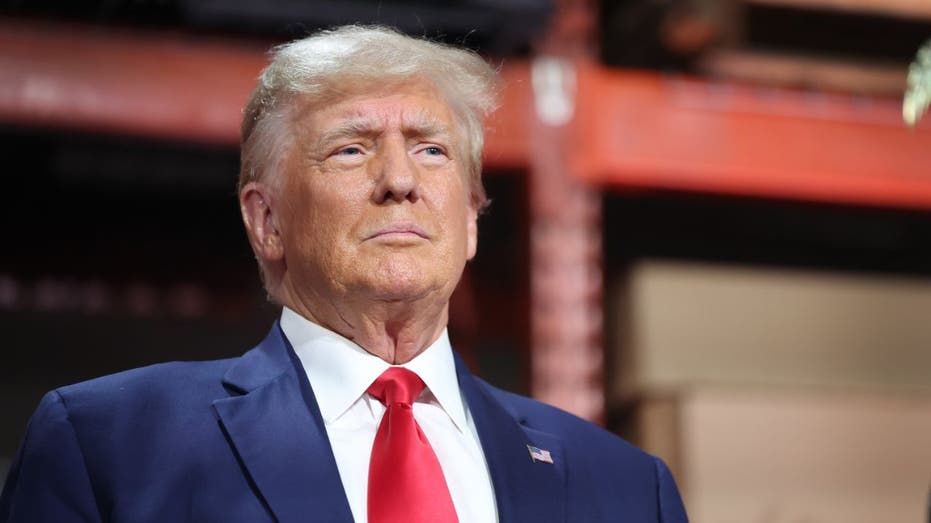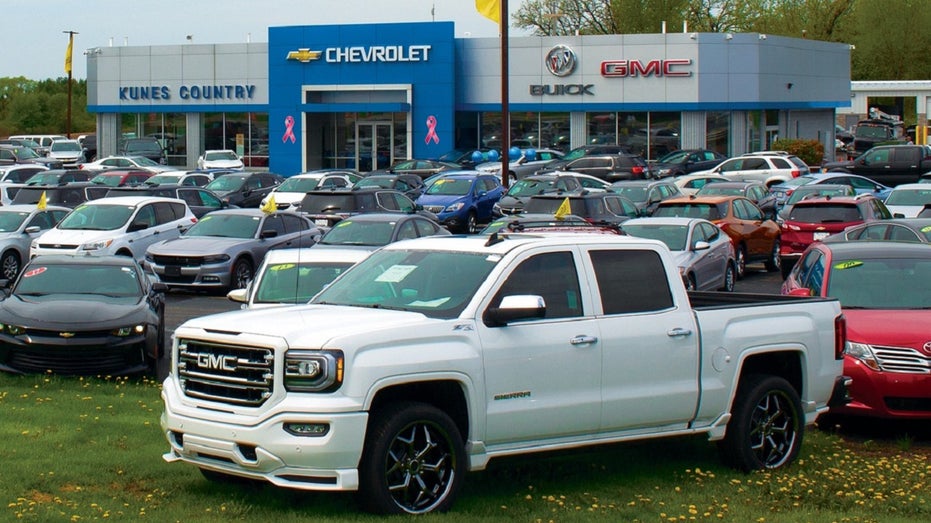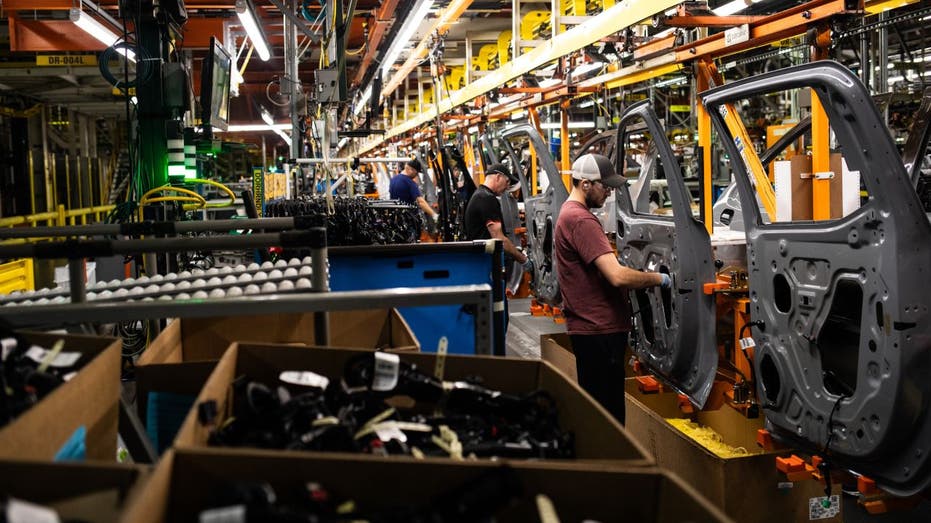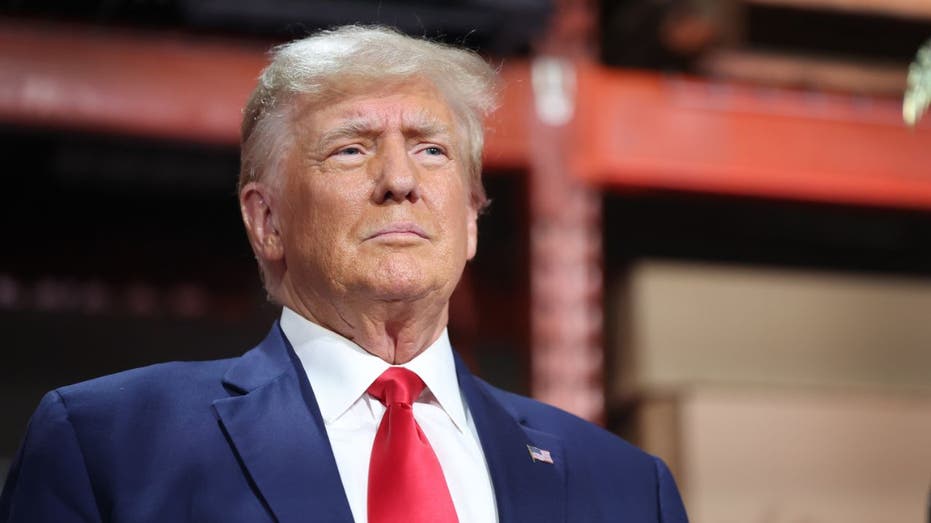Auto Workers for Trump founder Brian Pannebecker rallies for former President Trump at a rally in Warren, Mich., Friday.
President-elect Trump’s return to the White House will no doubt bring changes to the automotive industry, as he has vowed to roll back many of the Biden administration’s policies and replace them with his own.
While some of Trump’s 2.0 agenda will be familiar from his first term, he added some planks to his platform during the last campaign that could reshape parts of the sector.

President-elect Donald Trump has proposed a number of policies that could impact the auto industry. (Scott Olson/Getty Images / Getty Images)
For starters, Trump has vowed to do away with the so-called EV mandates imposed on the auto industry and the broader American public.
Scott Kunes, COO of Kunes Auto Group, told FOX Business in an interview that dealers like him are excited to see what’s coming down the pike in the next administration, particularly surrounding EVs and Trump’s platform of deregulation.
FORMER CHRYSLER EXEC SAYS TRUMP’S WIN IS PROMPTING CEOS TO MOVE OUT OF CHINA
“I think most of us have been screaming from the rooftops a little bit that we can’t force this EV transition,” Kunes said. “And while we want to be good partners with our manufacturers, and we want to provide our consumers what they want, the [Biden] administration forcing this EV transition – not only on the manufacturers, but us as dealers – has had a pretty serious detrimental effect to our business.”
But unwinding some of the policies rammed through in the EV push over the past four years could prove complicated.

Kunes Chevrolet, part of Kunes Auto Group. (Kunes Auto Group / Fox News)
Kunes, whose company oversees more than 40 dealerships, said he does not expect a complete reset on the EV front, because manufacturers and dealers alike have far too much invested in them at this point. But he is hoping the Trump administration will ease Biden’s administration’s emissions rules, which effectively require that nearly all new vehicles must be EVs by 2032.
TRUMP TEAM REPORTEDLY LOOKING TO KILL BIDEN’S $7,500 EV TAX CREDIT
Reuters reported last week that Trump’s transition team is looking to get rid of the $7,500 federal tax credit for EVs enacted during the Biden administration. But Kunes hopes Trump will keep those incentives in place, so dealers can continue to push the EV vehicles that are already on their lots.
“We are in a losing proposition here, because right now the consumers that have switched to EV mostly have done so through leasing, because they can take those tax incentives right up front, it affects the payment, and it really fits their budget well at that point,” he explained.
Boyden Gray PLLC partner Michael Buschbacher discusses concerns of an electric vehicle mandate on ‘The Bottom Line.’
Regardless of Trump’s policies surrounding EVs, Autotrader and Kelley Blue Book Executive Editor Brian Moody told FOX Business he does not anticipate significant changes in the industry in the short term on that front.
“The industry will still have a slow migration toward electric vehicles” in 2025, Moody said. “On the road to that, hybrids and plug-in hybrids (as well as synthetic fuels and fuel cell tech) will continue to be popular – increasingly so.”
SCOTT BESSENT: LET’S TALK TARIFFS. IT’S TIME TO REVITALIZE ALEXANDER HAMILTON’S FAVORITE TOOL
Moody said it’s important to note that automakers don’t make product planning decisions with a four-year horizon.

Workers assemble vehicle doors at the General Motors assembly plant in Fort Wayne, Indiana, US, on Tuesday, April 9, 2024. (Photographer: Emily Elconin/Bloomberg via Getty Images / Getty Images)
“They’re thinking a decade or more ahead,” he said. “The policies of the next four years might affect how the industry goes about getting where they need to go, but neither winner will radically change the automotive landscape of the mid-2030s.”
GET FOX BUSINESS ON THE GO BY CLICKING HERE
Trump has indicated he will be looking at tariffs, tax incentives, and the transportation sector as a whole. On those initiatives, Moody said, the president-elect will likely be looking to boost or protect American automakers in some way.
He added, “If tariffs work as they have in the past, the result will be that more overseas automakers will begin building cars in the USA – as many are already doing.”
